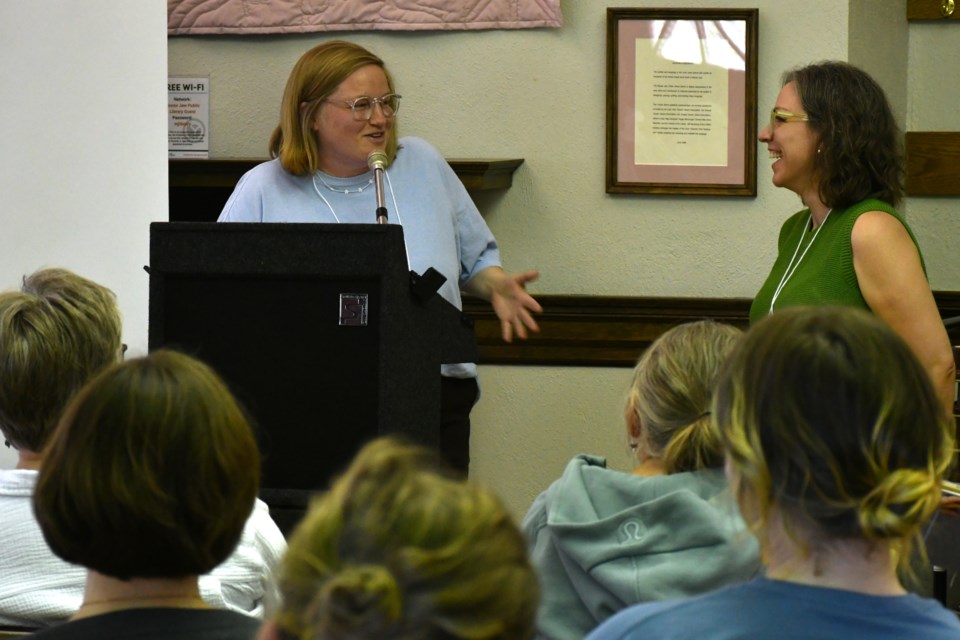MOOSE JAW — Tucked away in quiet corners of the Moose Jaw Public Library, authors shared personal stories, provocative questions, and poetic monologues during this year’s Festival of Words reading sessions that offered festival-goers a window into the minds that penned some of their favourite books.
The back-to-back readings took place July 17 and 18 from 9 a.m. to 3 p.m., each one lasting around 50 minutes and featuring an array of writers across genres. Sessions were held simultaneously across multiple rooms at the library and played a major role in the larger festival.
Attendees heard from more than two dozen authors, including poets, fiction writers, memoirists, and performance artists, many of whom used their time to reflect on the creative process — and the emotional cost that often comes with it.
“I’m eager to speak today, just because I’m so upset so often with what’s going on in the world,” said author RC Weslowski during his high-energy spoken word performance on July 18.
“Each day seems to give us more reasons to not care, to remain in our caves feeling feral, angry and abandoned … Well, here’s the thing … Let’s bathe in the wonder of the blunder that created us, the cosmic giggle that leaves us laughing and asking, ‘What are we doing here? Who’s driving this bus?’”
Themes of emotional truth and artistic motivation also ran through a lively conversation between K.J. Aiello and Meredith Hambrock, who spoke candidly about the role of rage, class anxiety, and trauma in their work.
“I’m always mad about something,” Hambrock shared. “I think I need a complaint — a cultural complaint — to get started. My first novel is really a complaint about gentrification in cottage country … and I was just really mad and broke, obviously, and eating frozen yogurt (while I wrote it).”
Aiello, a Toronto-based writer whose work explores mental illness, identity, and the power of fantasy, offered practical advice for those tackling memoir. “If you want to write your story, write it for you, and then edit it for your readers,” she said. “You have to be okay going back there (and) looking at both sides ….”
She and Hambrock also shared candid insights into the writing process. Hambrock described anger as a powerful creative spark, while both emphasized the importance of revising, accepting feedback, and remaining emotionally honest. “Just finish the draft,” Aiello advised, particularly for newer writers. “Then get feedback.”
Ardra Shephard added to the conversation with reflections on life with multiple sclerosis (MS) and how people with disabilities are too often rendered invisible. “You’re either in the middle or completely ignored,” she said. “It’s like you’re no longer a human.”
Her recent memoir, Fallosophy: My Trip Through Life with MS (Douglas & McIntyre, March 2025), blends sharp humour, cultural critique, and personal essays to confront disability stigma and systemic barriers, including inaccessible health care and housing.
Framed by her own diagnosis at 23, the book traces Shephard’s journey through grief, adaptation, and hard-won perspective — challenging the idea that disability is “a fate worse than death,” and arguing instead that even a difficult life can still be rich with joy, identity, and purpose.
The reading sessions were part of a broader schedule of more than 50 events, from workshops and panels to poetry showcases and literary trivia. With authors sharing raw experiences and creative insights, the sessions captured a crucial part of the festival — sparking connection through fearless storytelling.
For more information, visit FestivalOfWords.com.




